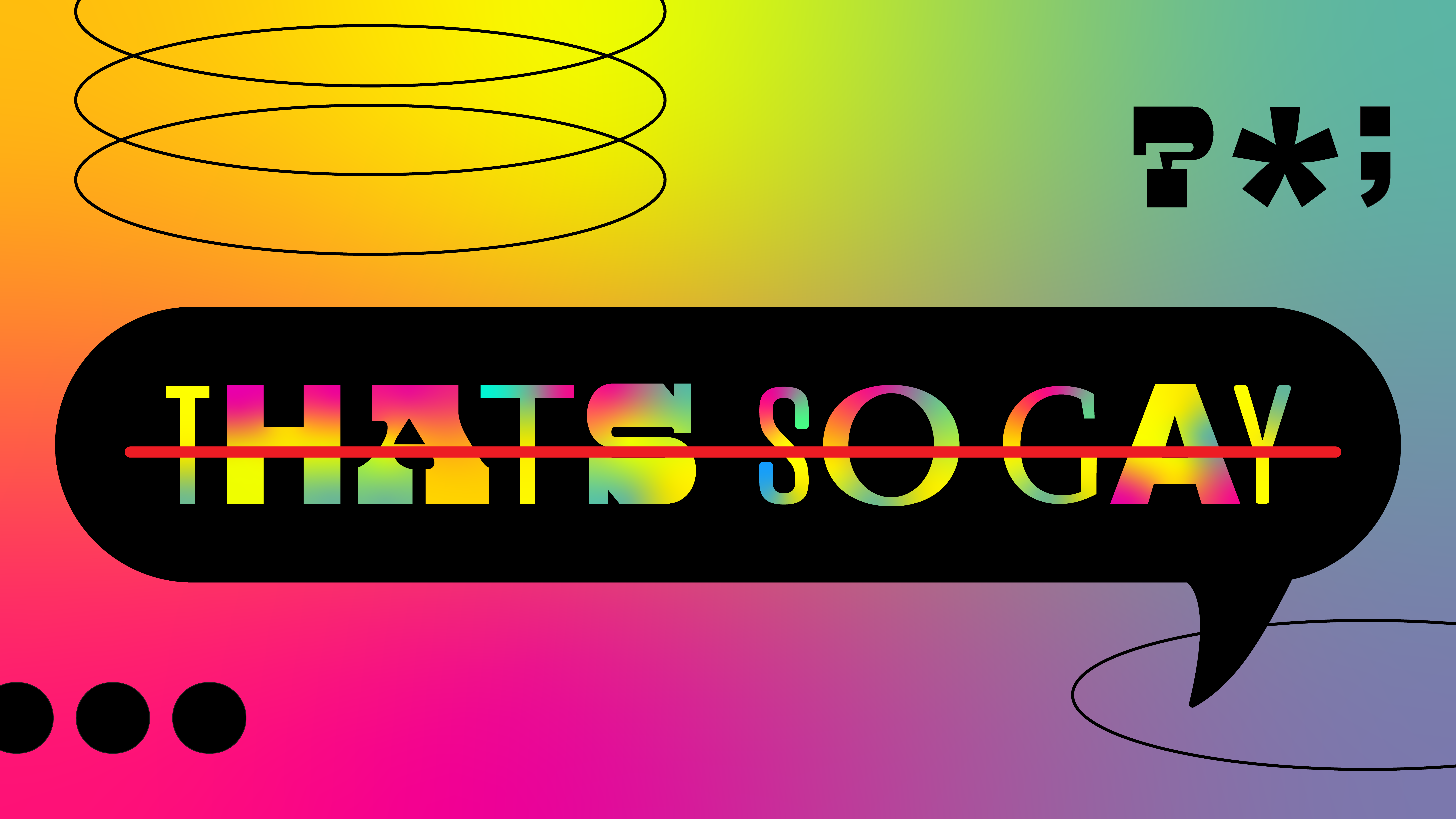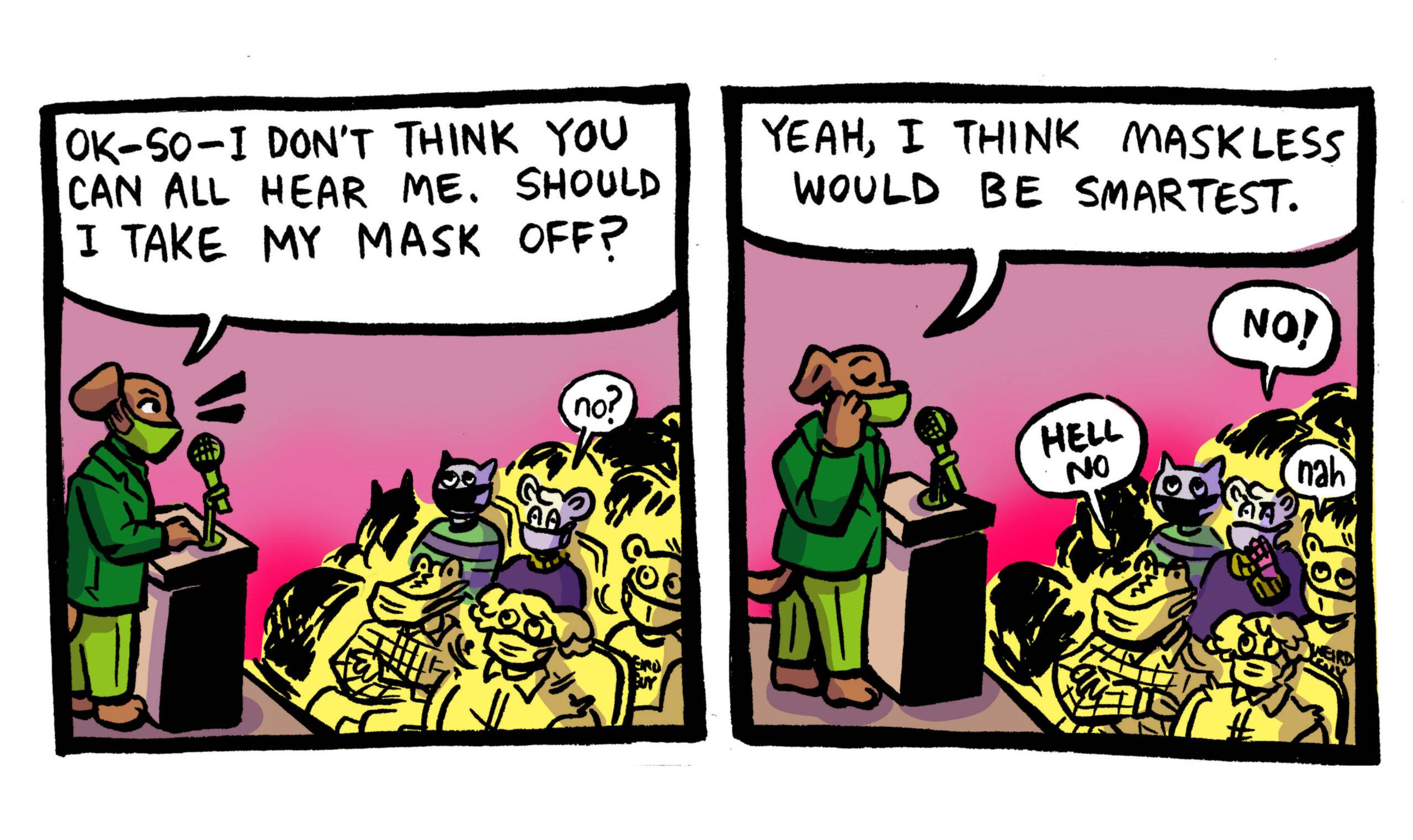
Even though itʼs #spookyszn, I’ve never been into Halloween: I donʼt like candy, I’m not a costume person, and I hate scary movies. The one October tradition I am loyal to is watching the Sanderson Sisters terrorize the town of Salem in the 1993 cult classic, “Hocus Pocus.” If youʼre not a 90s baby, let me summarize it in three sentences: a snarky virgin accidentally brings three witches from the 17th century into the present using dark magic. Hilarity ensues. Good triumphs over evil. Bette Midler, Sarah Jessica Parker, and Kathy Najimy play ancient witches, and their elderliness is made clear by their fear of modernity and their archaic manner of speaking. “Thou hast waited in vain!” Midlerʼs character cries to her feline archnemesis, Thackery Binx, “and thou will fail to save thy friends, just as thou failed to save thy sister!” I was reminded of the Sanderson Sistersʼ unique vernacular when I made my friend watch the sequel with me, and it also gave me a great excuse to hyperfixate on a topic thatʼs been on my mind lately: the evolution of language.
In Anthropology 101, I learned the capacity for language separates humans from other lifeforms. Thatʼs all I can remember from that class, so the rest of this paragraph is mostly pulled from Wikipedia: the development of language is thought to have coincided with the evolution of larger brains, and was an adaptation specifically developed for social cooperation. Language is processed in the Brocaʼs and Wernickeʼs area of the brain, and is acquired through social interaction from birth. There are now an estimated 5,000-7,000 languages, but itʼs difficult to predict an exact number, because languages evolve so rapidly. (Much faster than biological evolution.) Consider this: humans havenʼt changed much over the past two thousand years, which is why we still have multiple vestigial organs. Contrarily, language has evolved so rapidly that witches speaking colonial English from three hundred years ago would seriously struggle to understand a teenager telling them to buzz off in the present.
There are also different kinds of language. There are dialects and vernacular. There is formal language, and colloquial language, or slang. Now that Iʼm thirty, Iʼm starting to feel like I canʼt speak youth anymore. For example, a teenager recently told me that my Birkenstocks were “drippy.” If you also had to Google whether or not that is an insult or a compliment, congratulations, youʼre old too. (Or, as the kids would say, “cheugy.”)
Like Birkenstocks, slang goes in and out of fashion. If you also went to high school in the early 2000s, (once again, aging myself here) you probably heard your friends overusing the word “gay.” “Thatʼs so gay” was a phrase that was as ubiquitous to millennial high schoolers as UGG boots and hot pink Razor cell phones. Luckily, Hillary Duff was there to single-handedly cure the world of homophobia. Her infamous “Think Before You Speak” campaign instantly became one of the worldʼs first memes, but it also kind of worked. Like low-rise jeans, using the word “gay” as a slur mostly went out of fashion in the United States.
Similarly, words that once served a purpose can be twisted into something sinister or lose their deeper meaning. Language can be used to cooperate, innovate, repair, and create, but it can also be used to harm, tear down, and marginalize. A constantly morphing cultural glossary can be a good thing, but not everyone is always notified of these transitions.
For example: When I was a student at the University of Wisconsin in 2013, my father, who also happens to be a professor, called me and dove into a rant about one of his evaluations. “Jamisen!” he shouted into the phone. “One of my students called me offensive for using a medical term! Mentally [r-word] is a medical term describing a condition.” Heʼs not completely wrong, although his information was a little outdated. The r-word was used as a medical term in the late 19th and 20th centuries to refer to intellectual disabilities. It stems from Latin and French, with roots in similar words meaning “to hold back” or “to slow down.” Unfortunately, nobody updated my Dad that the word was tainted by harm and ableism in the early 2000s. When I was in high school, the r-word was hurled around as an insult daily. In 2009, disability rights activists Timothy Shriver and Soeren Palumbo started the campaign “Spread the Word to End the Word,” urging the world to replace the r-word with pro-disability, social justice-oriented language. By the time this phone call happened when I was in college, the original meaning of the r-word was completely clouded by its negative history, and the original meaning had become destitute.
The words we use are important. So important I donʼt feel like there is a word strong enough to emphasize how important it is. How we speak shapes the way our brains think. The way we think molds how we communicate, and through communication we build relationships. Relationships make up communities, which form cities, states, and civilizations. It is imperative that we use respectful terminology to describe others in our society, especially when those people have been historically marginalized, and functional words become twisted into a tool for harm or violence. Having better words to communicate is always a net positive. But– what if we “cancel” words and we canʼt agree on a worthy replacement?
When I started graduate school to become a therapist, I added many new words to my vocabulary. I learned that when modern psychiatry began as psychoanalysis, the subjects were called “analysands.” I read about transference, triangulation, and dialectics. (Oh my!) I also discovered that a lot of practitioners have problematized the usage of the word “patient” in the past few years. “Patient” is derived from the Old French word “pacient,” meaning to suffer or endure. The origin of the word “patient” in the field of psychiatry most likely stems from the prevalence of mental asylums that arose in the 19th century to treat neurodivergent people. As Iʼm sure you can imagine, plenty of harm and abuse occurred in asylums. The word “patient” still contains that history, which is why many clinicians have chosen to stop using it. This shift also represents a distancing from the United States medical model of care and the desire to dismantle power hierarchies present in the therapeutic relationship.
And yet, (to play the ever-unpopular devilʼs advocate) we donʼt always cancel words just because they are attached to a problematic history or imply an imbalance of power. “Father” and “son,” “boss” and “employee,” or “student” and “teacher” are all titles that signify a hierarchical relationship, but we donʼt consider these words to be offensive. Politicians and mothers and doctors and teachers and scientists have all been guilty of abusing their power, but we havenʼt replaced those words either. I suspect the discomfort associated with the word “patient” is closely entwined with the ideas we hold about neurodivergent people, or needing treatment.
When I go to the doctor, Iʼm still a patient, but when I see my therapist, she most likely calls me her “client,” like most current psychotherapists. In my (brief) time working in mental healthcare, Iʼve also heard a cornucopia of other words to describe people in therapy, including “consumers,” “members,” and “participants.” None of these words feel right to me. (For the record, “patient” doesnʼt either.) I began my practicum a few months ago, so now I am a practicing therapist, but I donʼt know what to call the people in my care. “Client” feels too transactional to me; a little too impersonal; a little too capitalist. The therapeutic relationship is intimate and unique. Plus, I work with children. The kids Iʼm treating range in age from 4 to 13, and the word “client” gets stuck in my throat when Iʼm talking about a person wearing velcro Spider-Man shoes instead of loafers. Participants? Too generic; too Girl Scouts; too craft circle. Members? Members of what? Consumers? Analysands? None of these words are wrong or bad, but I donʼt feel like they describe the relationship I have with the children I see.
I canʼt help but wonder, Carrie Bradshaw-style: if we are replacing words in the interest of social justice without tackling the deeper problem behind the problematization, will we need to continue coming up with new words? Will I ever have an accurate word to describe the children Iʼm caring for? And if not, what are the potential consequences of that?
For now, the children I work with and their families have a word to describe who I am: I am their therapist. We all know exactly what that means and what that title holds, and perhaps thatʼs good enough. Luckily, language evolves quickly, so maybe someday soon Iʼll have a word for them too.
Jamisen Paustian (MAATC 2024) colors more than most adults, but she rarely stays inside the lines. @jamis3n







